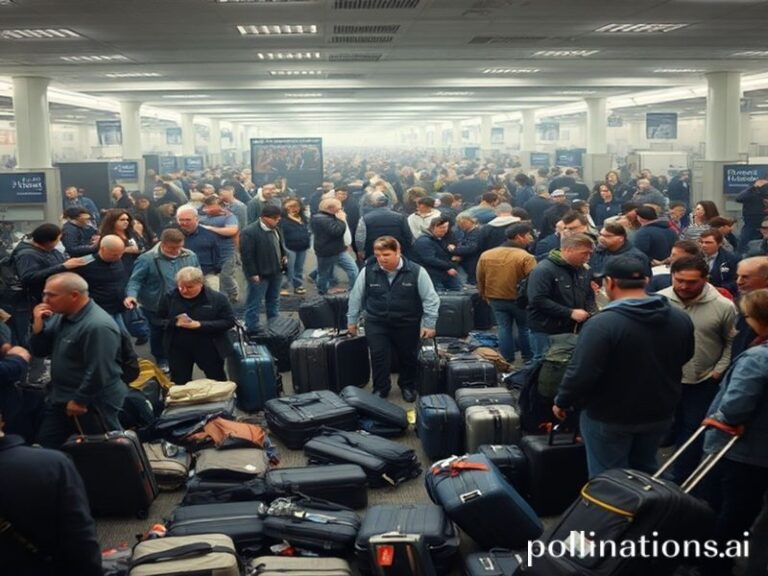Will Smith, Dodgers, and the Global Identity Crisis: A One-Year Deal That Explains Everything Wrong with 2024
Will Smith, Dodgers, and the Accidental Metaphor for a Planet That Swings at Everything
When news broke that the Los Angeles Dodgers had signed reliever Will Smith—no, not that Will Smith, the other one, the one who throws 95-mph sinkers instead of televised slaps—global reaction was swift, multilingual, and predictably unhinged. Tokyo sports bars erupted in confused cheers; Lagos Twitter mistook it for an elaborate prank; and in Paris, where existential dread is the national sport, pundits declared the transaction definitive proof that reality itself had jumped the shark. Somewhere in Kyiv, a war-battered barista glanced at the headline, muttered “At least somebody still gets free agency,” and went back to rationing coffee beans like it was 1942.
The transaction, on paper, is routine: a mid-tier bullpen arm inks a one-year deal, stock photo smiles, clichés about “competing for a championship” are dutifully recited. Yet in an age when a single slap at the Oscars can tilt the Indian stock market and a misplaced emoji can spark a diplomatic incident in the Gulf, even the most pedestrian baseball move metastasizes into a geopolitical Rorschach test. Consider: the Dodgers are majority-owned by a consortium whose money originates everywhere from La Jolla to Luxembourg; Smith’s new catcher, fellow Will Smith, once endorsed a cryptocurrency that briefly bankrupted a village in rural Vietnam; and the baseball itself is now manufactured in a Costa Rican factory so efficient it makes Foxconn look like a Montessori preschool. Globalization, that voracious ouroboros, has finally swallowed the national pastime and is quietly flossing with the seams.
For the uninitiated, there are currently two active Will Smiths in Major League Baseball—an irony so rich it should come with a defibrillator. One is a catcher who moonlights as a power-hitting bard; the other is a pitcher whose main skill is inducing ground balls and existential crises among play-by-play announcers who must specify which Will Smith just threw a wild pitch. Linguists in Prague have already coined the term “Smithsplaining” to describe the inevitable moment when an American tourist abroad tries to clarify the difference using only charades and a half-remembered episode of Fresh Prince. The result is a perfect distillation of 2024: two identical names, zero clarity, and everyone pretending they totally understand what’s going on.
Meanwhile, the broader implications ripple outward like cheap champagne in a locker-room spray. China’s state broadcaster, still sulking over a decade-old tweet about Hong Kong, refuses to air Dodgers games, pushing a billion potential viewers toward grainy Twitch streams hosted by teenagers in Saskatchewan. In Buenos Aires, where inflation makes Bitcoin look stable, black-market merchants now quote prices in “Dodger Dollars”—a fictional currency indexed to Mookie Betts’s on-base percentage. Even the Vatican weighed in, sort of: during a recent audience, Pope Francis—himself a rumored San Lorenzo fan—compared the two Will Smiths to “the two thieves on either side of the cross, except one throws sliders.” The line was mistranslated by an overzealous wire service as “thieves who throw sliders,” briefly causing minor panic in Vatican security.
And so the planet keeps spinning on its tilted, over-leveraged axis, powered by memes, mercenaries, and the faint hope that somewhere, someone still knows which Will Smith is at bat. The Dodgers will win 95 games, lose in the NLCS, and raise ticket prices by 12 percent; the other Will Smith will film a redemption arc opposite CGI wildlife; and the rest of us will refresh timelines that feel increasingly like group therapy for the catastrophically online. In that sense, the Dodgers’ newest reliever is not just another arm in the bullpen—he’s a living, breathing metaphor for a world that can’t tell its slaps from its sliders, its allies from its avatars, its crises from its content.
Play ball. Or don’t. The algorithm will swing either way.







